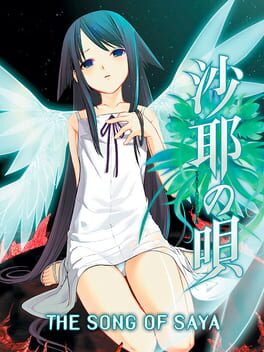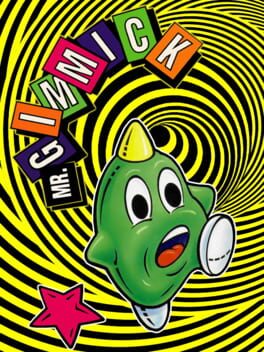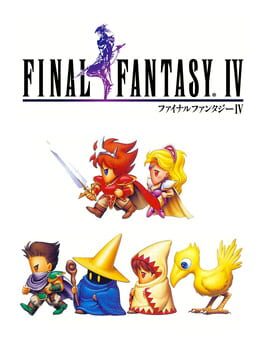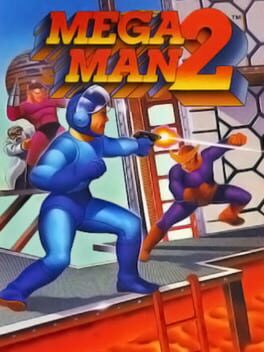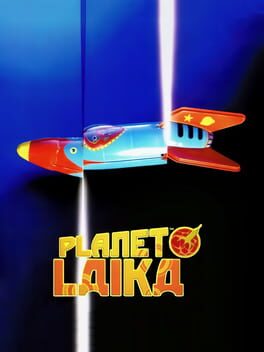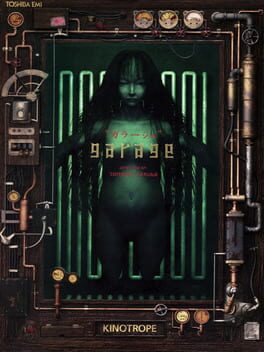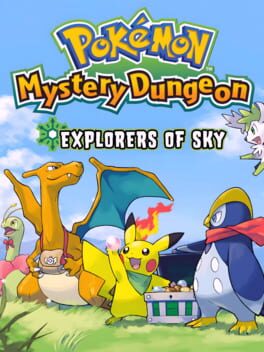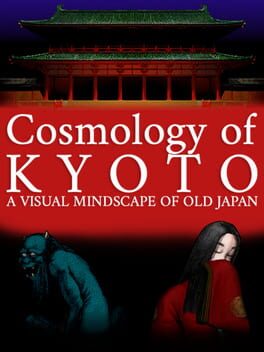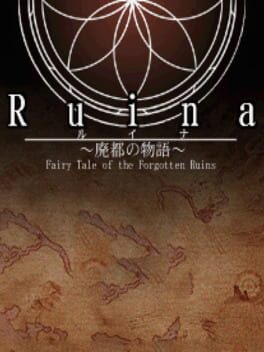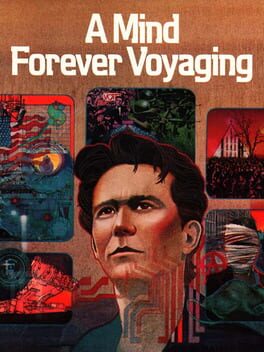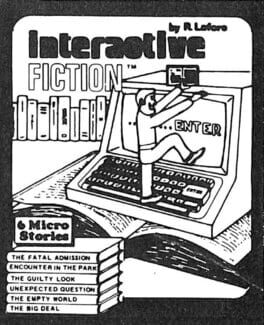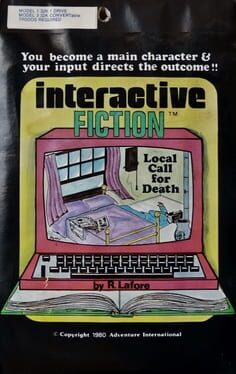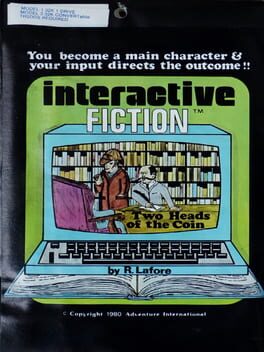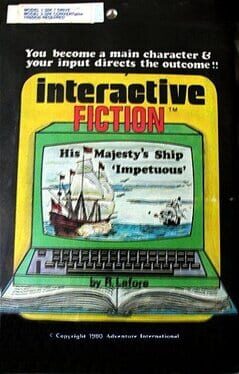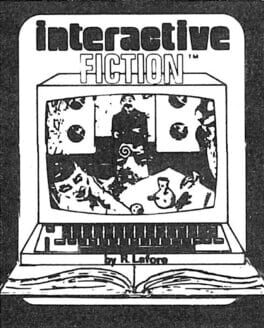luciferscall
15 reviews liked by luciferscall
Saya no Uta
2003
I'm not sure if I could trust anyone that actually likes this visual novel if I'm being real. I honestly only played this because I had "Saya's Song" stuck in my head for like a week and thought to myself at 1 AM today to finally give the stupid VN a go (knowing I wasn't going to like it). Anyways I did manage to play it through in like 3 sittings since it was short but Jesus Christ was it actually awful. I also got every ending so before any dudebro with nonce particles inside them gets rowdy thinking I only got one ending or something, CALM DOWN.
I liked certain concepts of the game such as Saya being a sort of "idol" to Fuminori, but I genuinely wished the game didn't try cramming down stupid unnecessary sex scenes down our throats like "heh... isn't this EVIL and DARKSIDED? take a glimpse at Urobuchi's DARK and TWISTED mind... heh". Like great, thanks Urobuchi I don't like you. Everyone and their grandma is like nnooo nooo these sexual scenes are supposed to cement how far gone Fuminori is and how he's losing his humanity and like it's to show how he and Saya are the only lonely people in each other's worlds and- BLAH BLAH BLAH I DONT CARE. IT SUCKS. If I'm being real the sex scenes with Fuminori feel like an excuse for men to find a way to feel aroused during these scenes because clearly they were trying to hit some sort of erotic points for the reader. There are so many things that could have been done better to still prove that Fuminori is a horrible human being without it resorting to sex. I had to keep skipping the h scenes and their dialogue because why would any sane person want to see a grown ass man doing all of that to someone who looks like a ten year old. If I had a nickel for how many times I saw the word manhood as a replacement for the word penis I'd have enough money to fly to Japan and drop an anvil on Urobuchi's head.
Anyways, I just don't appreciate how pessimistic and misanthropic this visual novel is, and I guess I'm glad I finally played through this myself so I can mentally throw rocks and strike people with psychic beams anytime I see someone praise this horrendous piece of slop.
I liked certain concepts of the game such as Saya being a sort of "idol" to Fuminori, but I genuinely wished the game didn't try cramming down stupid unnecessary sex scenes down our throats like "heh... isn't this EVIL and DARKSIDED? take a glimpse at Urobuchi's DARK and TWISTED mind... heh". Like great, thanks Urobuchi I don't like you. Everyone and their grandma is like nnooo nooo these sexual scenes are supposed to cement how far gone Fuminori is and how he's losing his humanity and like it's to show how he and Saya are the only lonely people in each other's worlds and- BLAH BLAH BLAH I DONT CARE. IT SUCKS. If I'm being real the sex scenes with Fuminori feel like an excuse for men to find a way to feel aroused during these scenes because clearly they were trying to hit some sort of erotic points for the reader. There are so many things that could have been done better to still prove that Fuminori is a horrible human being without it resorting to sex. I had to keep skipping the h scenes and their dialogue because why would any sane person want to see a grown ass man doing all of that to someone who looks like a ten year old. If I had a nickel for how many times I saw the word manhood as a replacement for the word penis I'd have enough money to fly to Japan and drop an anvil on Urobuchi's head.
Anyways, I just don't appreciate how pessimistic and misanthropic this visual novel is, and I guess I'm glad I finally played through this myself so I can mentally throw rocks and strike people with psychic beams anytime I see someone praise this horrendous piece of slop.
Heisei Pistol Show
2008
Pivotal.
Funny that this has "pistol" in the title when it erupts with the force and bombast of a shotgun by your ear, explosive and unyielding, leaving you reeling as you try to reorient yourself. Constantly moving, never wasting a single breath, ensuring you can't look away. Tragedy as banality as comedy. Love is rainbow.
Heisei Pistol Show is a work that I have both no words and far too many words for. Rarely can anything — anything — strike a balance between sorrow and joy this effortlessly, bouncing the audience back and forth between having their hearts rended and making them double over with laughter. Slaughtering your way through Heart’s former assassin colleagues and then having your pistol say “I’m Pistol” in the Microsoft Sam voice every time it talks is the sort of thing that doesn’t sound like it works when it’s described to you, but flows perfectly when it’s actually experienced. I’m tempted to say that it’s all over the place tonally, but it really isn’t; nothing ever drifts too far from the through-line, with these shifts being core to the holistic affair.
Most notable about Heisei Pistol Show, however, is how it handles queer characters in a way that’s nothing short of masterful. Heart is a wonderful, awful character, both a victim of circumstance and someone who causes his own problems. Heart suffers because he is gay, but Heart also suffers and he is gay. Heart is abused by his father not because he is gay, but because he reminds his father of his mother. Heart is exiled by his family not because he is gay, but because he isn’t religious. Heart loses his friends not because he is gay, but because he refuses to accept their platonic love for him. Heart can’t find love because he is gay and thus limits himself exclusively to his clients that he serves as a rentboy, none of whom love him back. Heart can’t find love because he is gay and he’s lived his entire life in a society that hates him and his kind, and makes every attempt to hide what healthy gay relationships look like. Heart suffers because he is gay. Heart suffers and he is gay.
I’ll echo a common sentiment I see shared about this game and say that it makes so many pieces of queer media look toothless by comparison, especially in more recent years. Many of these works are made by and for queer creatives, but so many fail to strike balance. Either queer trauma is used, is weaponized, is swung like a baseball bat to cripple and wound any gays in the audience so the straights can feel like they did something by "experiencing something hard", or queer trauma is ignored wholesale in order to keep up the "comfy vibes". I played The Big Con earlier this year and dropped it because it was billed me to as a solid piece of queer media and instead existed as this soft, mealy blob-thing seemingly designed for people who say “be gay do crimes” and “FALGSC” online and then get sweaty palms when they think about shoplifting a pack of gum. Nobody in that world had ever had a single negative thought, ever, about queer people in 90’s North America. I don’t mean to turn this into a rant where I’m just shitting on a different work, but it really illustrates how many worlds of finesse apart a creator like Parun was long before it was even remotely popular to be tackling subject matter anywhere even approaching this in video games.
I wouldn't dare erase the experiences of these other creators by suggesting that these aren’t accurate to lived experiences — there are enough dipshits out there doing that already — but it always leaves me a little raw to never see me on the screen. Characters who aren't living their saccharine, gumdrop lives where everything in their world is completely fine and without conflict, but neither are they defined exclusively by external traumas and hatred, never possessing the agency to do anything besides be abused. Where are the characters who have lived complex lives? Who have suffered, but have found joy? Even if it ends in tragedy, where are those who have found catharsis in themselves and their loved ones in the quiet moments? Are they all locked away in Japanese RPG Maker games from 2008?
The messaging can be a bit clumsy in terms of what it's trying to get across, even after some scrutiny; Tokimeki's song calls out to "Indians" in feather hats who all look like T. Hawk, "Slums" made up entirely of dark-skinned characters, and Koreans, whose history of being discriminated against in Japan has been well-documented for decades. I'm still uncertain if this is simply a bit of off-color humor inserted into the bit or if it's a genuine and well-intentioned call of solidarity from one oppressed group to a few others; knowing what I know about Parun and his other work, I'm inclined to believe it's the latter. I'd like that to be the case, too.
After I beat the game, I saw Parun say that he liked reading fan theories of his work, and that he hoped the players of Heisei Pistol Show would come up with some for him to check out. I’m at least a decade and a half late to the party, but allow me to try, regardless.
The game is Heart's dying dream; a fantasy land conjured up in his final moments, flashing through vignettes of his life. Heart, in reality, is the rentboy Matsumoto tells his friend about, who contracted herpes, killed his friend, and committed suicide by cop. The dying dream itself is hyperreal, in the Baudrillardian sense. It's a simulacrum of reality that Heart escapes to — or perhaps is forced to escape to, his hallucinations resulting from his herpes meningoencephalitis — wherein he relives a version of his life as a musical, as kabuki theater. His friends are there, and he metaphorically guns them down, abandoning them in reality. His unrequited lover is there, and Heart actually guns him down, just as he does in reality. At the end of the dream, Heart is shot, told he's never known love because he was so desperate for it that he would latch onto anyone and everyone, and then he's out of memories. He imagines himself at the concert from his childhood once more, now the starring princess he always dreamt he would become, and he quietly passes away with a smile on his face.
At least, that’s the way I saw it all play out. I thought it was a remarkably straight-forward story once all of the ending reveals wrapped up, but then I got to a dev room where Parum’s authorial mouthpiece character told me that he thought I was dull if I believed that I had it all figured out after a single playthrough. He then gave me a list of Mulholland Drive-tier questions that I needed to answer if I wanted to have a real shot at deciphering everything that happened. It ruled. I wonder if I’m close to what he intended.
There's a bitter irony that the one person who might know all of this for certain is the one person that we can no longer ask.
Funny that this has "pistol" in the title when it erupts with the force and bombast of a shotgun by your ear, explosive and unyielding, leaving you reeling as you try to reorient yourself. Constantly moving, never wasting a single breath, ensuring you can't look away. Tragedy as banality as comedy. Love is rainbow.
Heisei Pistol Show is a work that I have both no words and far too many words for. Rarely can anything — anything — strike a balance between sorrow and joy this effortlessly, bouncing the audience back and forth between having their hearts rended and making them double over with laughter. Slaughtering your way through Heart’s former assassin colleagues and then having your pistol say “I’m Pistol” in the Microsoft Sam voice every time it talks is the sort of thing that doesn’t sound like it works when it’s described to you, but flows perfectly when it’s actually experienced. I’m tempted to say that it’s all over the place tonally, but it really isn’t; nothing ever drifts too far from the through-line, with these shifts being core to the holistic affair.
Most notable about Heisei Pistol Show, however, is how it handles queer characters in a way that’s nothing short of masterful. Heart is a wonderful, awful character, both a victim of circumstance and someone who causes his own problems. Heart suffers because he is gay, but Heart also suffers and he is gay. Heart is abused by his father not because he is gay, but because he reminds his father of his mother. Heart is exiled by his family not because he is gay, but because he isn’t religious. Heart loses his friends not because he is gay, but because he refuses to accept their platonic love for him. Heart can’t find love because he is gay and thus limits himself exclusively to his clients that he serves as a rentboy, none of whom love him back. Heart can’t find love because he is gay and he’s lived his entire life in a society that hates him and his kind, and makes every attempt to hide what healthy gay relationships look like. Heart suffers because he is gay. Heart suffers and he is gay.
I’ll echo a common sentiment I see shared about this game and say that it makes so many pieces of queer media look toothless by comparison, especially in more recent years. Many of these works are made by and for queer creatives, but so many fail to strike balance. Either queer trauma is used, is weaponized, is swung like a baseball bat to cripple and wound any gays in the audience so the straights can feel like they did something by "experiencing something hard", or queer trauma is ignored wholesale in order to keep up the "comfy vibes". I played The Big Con earlier this year and dropped it because it was billed me to as a solid piece of queer media and instead existed as this soft, mealy blob-thing seemingly designed for people who say “be gay do crimes” and “FALGSC” online and then get sweaty palms when they think about shoplifting a pack of gum. Nobody in that world had ever had a single negative thought, ever, about queer people in 90’s North America. I don’t mean to turn this into a rant where I’m just shitting on a different work, but it really illustrates how many worlds of finesse apart a creator like Parun was long before it was even remotely popular to be tackling subject matter anywhere even approaching this in video games.
I wouldn't dare erase the experiences of these other creators by suggesting that these aren’t accurate to lived experiences — there are enough dipshits out there doing that already — but it always leaves me a little raw to never see me on the screen. Characters who aren't living their saccharine, gumdrop lives where everything in their world is completely fine and without conflict, but neither are they defined exclusively by external traumas and hatred, never possessing the agency to do anything besides be abused. Where are the characters who have lived complex lives? Who have suffered, but have found joy? Even if it ends in tragedy, where are those who have found catharsis in themselves and their loved ones in the quiet moments? Are they all locked away in Japanese RPG Maker games from 2008?
The messaging can be a bit clumsy in terms of what it's trying to get across, even after some scrutiny; Tokimeki's song calls out to "Indians" in feather hats who all look like T. Hawk, "Slums" made up entirely of dark-skinned characters, and Koreans, whose history of being discriminated against in Japan has been well-documented for decades. I'm still uncertain if this is simply a bit of off-color humor inserted into the bit or if it's a genuine and well-intentioned call of solidarity from one oppressed group to a few others; knowing what I know about Parun and his other work, I'm inclined to believe it's the latter. I'd like that to be the case, too.
After I beat the game, I saw Parun say that he liked reading fan theories of his work, and that he hoped the players of Heisei Pistol Show would come up with some for him to check out. I’m at least a decade and a half late to the party, but allow me to try, regardless.
The game is Heart's dying dream; a fantasy land conjured up in his final moments, flashing through vignettes of his life. Heart, in reality, is the rentboy Matsumoto tells his friend about, who contracted herpes, killed his friend, and committed suicide by cop. The dying dream itself is hyperreal, in the Baudrillardian sense. It's a simulacrum of reality that Heart escapes to — or perhaps is forced to escape to, his hallucinations resulting from his herpes meningoencephalitis — wherein he relives a version of his life as a musical, as kabuki theater. His friends are there, and he metaphorically guns them down, abandoning them in reality. His unrequited lover is there, and Heart actually guns him down, just as he does in reality. At the end of the dream, Heart is shot, told he's never known love because he was so desperate for it that he would latch onto anyone and everyone, and then he's out of memories. He imagines himself at the concert from his childhood once more, now the starring princess he always dreamt he would become, and he quietly passes away with a smile on his face.
At least, that’s the way I saw it all play out. I thought it was a remarkably straight-forward story once all of the ending reveals wrapped up, but then I got to a dev room where Parum’s authorial mouthpiece character told me that he thought I was dull if I believed that I had it all figured out after a single playthrough. He then gave me a list of Mulholland Drive-tier questions that I needed to answer if I wanted to have a real shot at deciphering everything that happened. It ruled. I wonder if I’m close to what he intended.
There's a bitter irony that the one person who might know all of this for certain is the one person that we can no longer ask.
Mr. Gimmick
1992
A technical marvel that is completely fucking miserable to play.
I'll get this out of the way, first: Gimmick might be the most impressive game I have ever seen running on a Famicom. I legitimately do not know nor could I begin to understand how a game that's only a few hundred kilobytes managed to pack visuals this pretty, sounds this pleasing, and an actual fucking physics engine onto a cart that ran on a console manufactured in the year 1983. By rights, this should not exist. People everywhere seem to constantly express surprise that Gimmick isn't actually another one of those retro throwback indie games, and they're right to be shocked. This might be the game that sells me on how drastic of an upgrade the Famicom was to the consoles that came before it. The Atari 2600 isn't shit compared to this. I digress. The point to make is that Gimmick really ought to be celebrated as a feat of engineering in video games.
Regrettably, though, video games need to be played.
Looking at Gimmick is significantly more fun than actually interacting with Gimmick. Yumetaro slides around like he's wearing ice skates long before you get to the actual ice level. Emulating rudimentary physics on the Famicom is undoubtedly an impressive feat, but it's handled in way that only manages to frustrate: downward slopes have almost zero friction, so you slide down them too quickly; it takes an obscene amount of time for Yumetaro to stop moving after you stop holding the button; enemies can turn on a dime, with none of them under any obligation to bother observing something as petty as the fundamental forces of the universe.
I was tempted to write about how I'm done giving the time of day to "cruel games", but I think that's prescribing a design intent when that's not necessarily what's here. What I'm ultimately and actually annoyed with is the fact that it's impossible to intuit certain enemy patterns or placements, which is where that feeling of cruelty stems from. The archers in Stage 4 are probably the most obvious and most unfair example, where the only shot you have at dodging their arrows is if you have prior knowledge as to where they actually are; they love shooting you from off-screen, with one placed specifically to catch you at the arc of your jump as you come out from the top of a previous screen, and another waiting at the end of a hallway to snipe you with a projectile that is literally a single pixel thick and roughly the same shade as the background. It's trivial to deal with if you know that it's coming, but that's if you know that it's coming.
This is a pattern that continues consistently throughout the game, but reaches an apotheosis at the end of Stage 5. The stage boss here is a little orb guy in a cart that moves horizontally along the top of the screen, shooting lasers down at you. To hit him, you have to bounce your star off of the top of the conveyor belt on the left, or fling it from the top of the conveyor belt down and hope that it bounces up the way that you want it to. The star, following the laws of physics, cannot bounce higher than its initial, highest bounce; essentially, you have one chance to hit the boss with a conveyor belt ricochet every time he comes near, and if you whiff, you have to wait for him to go all the way to the right and then all the way back to the left again. After he takes three hits, he fires his lasers even faster. The lasers also explode when they hit the ground, so your only option is to weave between them in mid-air. After he takes the fourth hit, he shoots the lasers so quickly that it is literally impossible to weave through them. If he takes the fourth hit too close to the left side of the screen, you won't be able to charge up your star fast enough to throw it, guaranteeing that you take damage. The fifth hit takes him out, at which point a second boss walks out from stage right to fire homing missiles and Contra spread shots at you. There is an unspeakable darkness within whoever designed this fight. A joyous mind cannot conjure these tortures.
The only part of the game harder than this is getting the Stage 4 secret item that lets you fight the true final boss, where you have one chance to jump off of your star (it has collision) and into an above alcove. If you miss it, you drop down onto a checkpoint, and you can't go back to try again. You can game over and continue to restart the entire level, but using a continue clears the remaining three secret items from the prior three stages out of your collection. You need six secret items in total — one from each level — to go to the true final stage. You either make that jump on your first attempt, or you have to start the entire game over from scratch. Again, I want to call this cruel. I don't know what word would better apply.
It's disappointing, because this is a game that I really would have liked to love. I think Yumetaro's design is so ridiculously over-the-top cute that it loops back around to being funny, and that endears me to him. I think the fact that Sunsoft were able to make all of these pieces fit together on hardware as rudimentary as the Famicom is admirable. I just wish the act of playing it didn't feel like pulling teeth.
Can I fuck 🥺
I'll get this out of the way, first: Gimmick might be the most impressive game I have ever seen running on a Famicom. I legitimately do not know nor could I begin to understand how a game that's only a few hundred kilobytes managed to pack visuals this pretty, sounds this pleasing, and an actual fucking physics engine onto a cart that ran on a console manufactured in the year 1983. By rights, this should not exist. People everywhere seem to constantly express surprise that Gimmick isn't actually another one of those retro throwback indie games, and they're right to be shocked. This might be the game that sells me on how drastic of an upgrade the Famicom was to the consoles that came before it. The Atari 2600 isn't shit compared to this. I digress. The point to make is that Gimmick really ought to be celebrated as a feat of engineering in video games.
Regrettably, though, video games need to be played.
Looking at Gimmick is significantly more fun than actually interacting with Gimmick. Yumetaro slides around like he's wearing ice skates long before you get to the actual ice level. Emulating rudimentary physics on the Famicom is undoubtedly an impressive feat, but it's handled in way that only manages to frustrate: downward slopes have almost zero friction, so you slide down them too quickly; it takes an obscene amount of time for Yumetaro to stop moving after you stop holding the button; enemies can turn on a dime, with none of them under any obligation to bother observing something as petty as the fundamental forces of the universe.
I was tempted to write about how I'm done giving the time of day to "cruel games", but I think that's prescribing a design intent when that's not necessarily what's here. What I'm ultimately and actually annoyed with is the fact that it's impossible to intuit certain enemy patterns or placements, which is where that feeling of cruelty stems from. The archers in Stage 4 are probably the most obvious and most unfair example, where the only shot you have at dodging their arrows is if you have prior knowledge as to where they actually are; they love shooting you from off-screen, with one placed specifically to catch you at the arc of your jump as you come out from the top of a previous screen, and another waiting at the end of a hallway to snipe you with a projectile that is literally a single pixel thick and roughly the same shade as the background. It's trivial to deal with if you know that it's coming, but that's if you know that it's coming.
This is a pattern that continues consistently throughout the game, but reaches an apotheosis at the end of Stage 5. The stage boss here is a little orb guy in a cart that moves horizontally along the top of the screen, shooting lasers down at you. To hit him, you have to bounce your star off of the top of the conveyor belt on the left, or fling it from the top of the conveyor belt down and hope that it bounces up the way that you want it to. The star, following the laws of physics, cannot bounce higher than its initial, highest bounce; essentially, you have one chance to hit the boss with a conveyor belt ricochet every time he comes near, and if you whiff, you have to wait for him to go all the way to the right and then all the way back to the left again. After he takes three hits, he fires his lasers even faster. The lasers also explode when they hit the ground, so your only option is to weave between them in mid-air. After he takes the fourth hit, he shoots the lasers so quickly that it is literally impossible to weave through them. If he takes the fourth hit too close to the left side of the screen, you won't be able to charge up your star fast enough to throw it, guaranteeing that you take damage. The fifth hit takes him out, at which point a second boss walks out from stage right to fire homing missiles and Contra spread shots at you. There is an unspeakable darkness within whoever designed this fight. A joyous mind cannot conjure these tortures.
The only part of the game harder than this is getting the Stage 4 secret item that lets you fight the true final boss, where you have one chance to jump off of your star (it has collision) and into an above alcove. If you miss it, you drop down onto a checkpoint, and you can't go back to try again. You can game over and continue to restart the entire level, but using a continue clears the remaining three secret items from the prior three stages out of your collection. You need six secret items in total — one from each level — to go to the true final stage. You either make that jump on your first attempt, or you have to start the entire game over from scratch. Again, I want to call this cruel. I don't know what word would better apply.
It's disappointing, because this is a game that I really would have liked to love. I think Yumetaro's design is so ridiculously over-the-top cute that it loops back around to being funny, and that endears me to him. I think the fact that Sunsoft were able to make all of these pieces fit together on hardware as rudimentary as the Famicom is admirable. I just wish the act of playing it didn't feel like pulling teeth.
Can I fuck 🥺
Final Fantasy IV
1991
Mega Man 2
1989
Mega Man 2
1989
This game is rediculous with out the use save states. If megaman wasn't so fun to play this game would be a 2 star.
The last run of bosses are insane. It ranges from fun, to outright unfair. The "boss" where is a room of wall turrets that shoot at you and you can only destroy it with a very energy heavy gun is awful. Excited to see how megaman 3 does
The last run of bosses are insane. It ranges from fun, to outright unfair. The "boss" where is a room of wall turrets that shoot at you and you can only destroy it with a very energy heavy gun is awful. Excited to see how megaman 3 does
Planet Laika
1999
not really sure what to say about planet laika yet. maybe it's best to say nothing other than that you really should play this if you're into weird rpgs. the story is obtuse, but pretty intense, in the same way movies like eraserhead or stalker are. atmosphere is on point, the music is amazing, everything just falls into place for this game.
i don't think i've ever played a game as unique and wild as this one. again, if you're into psychological stuff, like lynch's or tarkovsky's work for example, or just love late 90's prerendered graphics, this one is for you.
huge thanks to the fan translation team btw. i wouldn't have even known this game existed without them.
i don't think i've ever played a game as unique and wild as this one. again, if you're into psychological stuff, like lynch's or tarkovsky's work for example, or just love late 90's prerendered graphics, this one is for you.
huge thanks to the fan translation team btw. i wouldn't have even known this game existed without them.
This game has to be the first game to ever touch my heart the way that it did. The way it makes the player question if they are doing the right thing was very impactful. Although all PMD games have the theme of finding yourself, I feel like this one is the most impacting one in its delivery compared to the rest. My only complain is that the 3 times I played the game, the pokemon quiz gave me pokemon who would be destroyed by the the primal king.
